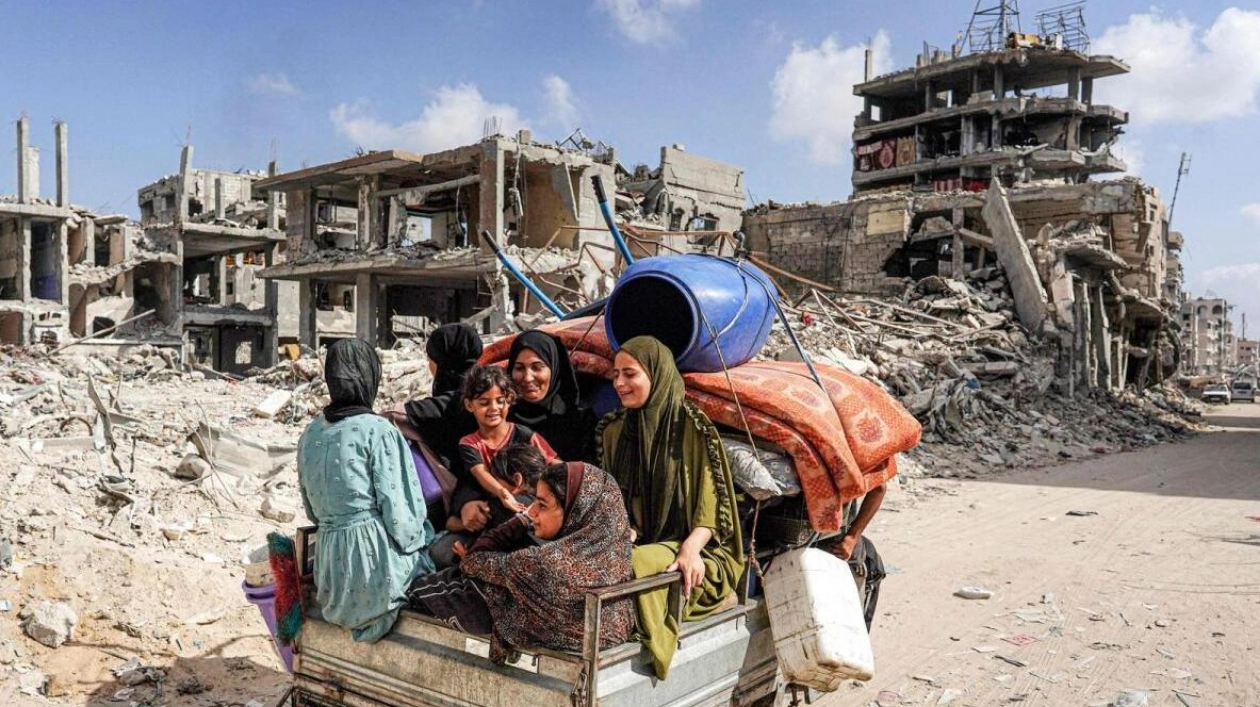Early Monday, Israeli forces launched a heavy bombardment on Gaza City, with columns of tanks advancing from multiple directions into the city center. Residents described it as one of the most lethal attacks in the Palestinian territory since the war began. The Gaza Civil Emergency Service reported that dozens of people were likely killed, but emergency teams could not reach them due to ongoing offensives in various parts of the city. Throughout the night and into the morning, northern neighborhoods of Gaza City were heavily bombed, resulting in the destruction of several multi-story buildings. One Israeli tank maneuver forced residents towards the western road near the Mediterranean Sea, leaving them with nowhere to escape.
"The enemy is behind us and the sea is in front of us, where can we go?" questioned Abdel-Ghani, a resident of Gaza City who did not provide his full name. He described the situation as tank shells and missiles raining down like a volcanic eruption, with people running in all directions, unsure of where to seek safety. The Israeli military claimed it was conducting an operation against militant infrastructure in the Gaza Strip, having neutralized more than 30 fighters. As Egypt, Qatar, and the United States intensified efforts to broker a ceasefire between Israel and Hamas, the Gaza war entered its tenth month.
The conflict was ignited on October 7 when Hamas-led fighters attacked southern Israel, killing 1,200 people and taking around 250 hostages, according to Israeli figures. Since then, over 38,000 Palestinians have been killed in the Israeli military offensive, according to Gaza health officials. On Monday, tanks advanced from at least three directions into Gaza City, supported by intense Israeli air and ground fire, forcing thousands to flee their homes in search of safer refuge. Medics at Al-Ahli Arab Baptist Hospital had to evacuate patients to the already crowded Indonesian Hospital due to an Israeli strike in Shejaia.
The Israeli military stated it had warned civilians about its operations and would open a route for evacuation from affected areas, accusing Hamas and Islamic Jihad of hiding behind civilian infrastructure to attack Israeli forces. The Palestinian Fatah Al-Aqsa Martyrs Brigades claimed to have fired mortar bombs against Israeli forces during the raid in southwest Gaza City. After Hamas accepted a key part of a US ceasefire proposal, hopes for a pause in the fighting were renewed. However, Israeli Prime Minister Benjamin Netanyahu insisted that any deal must not prevent Israel from resuming fighting until its war objectives are achieved.
Israeli Finance Minister Bezalel Smotrich argued that halting the offensive now would be a grave mistake, stating on social media that Hamas is collapsing and begging for a ceasefire, and that it is crucial to continue the pressure until the enemy is completely defeated.






